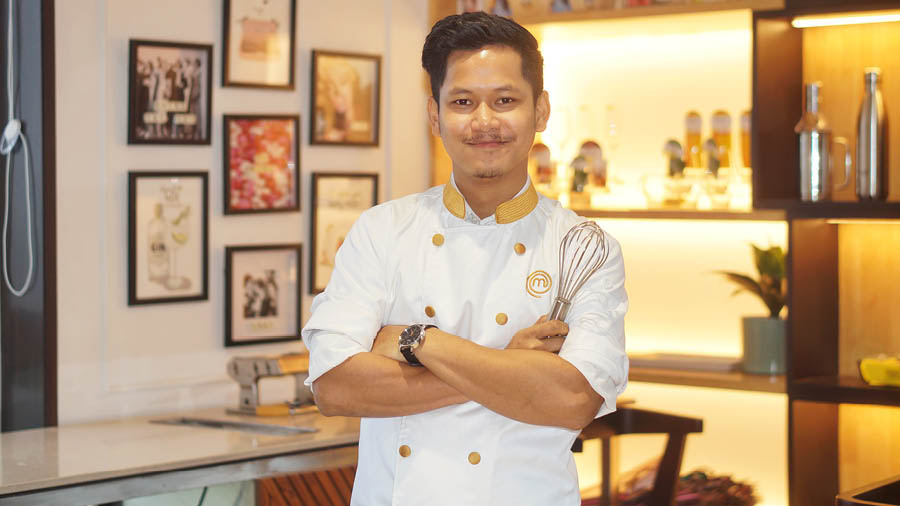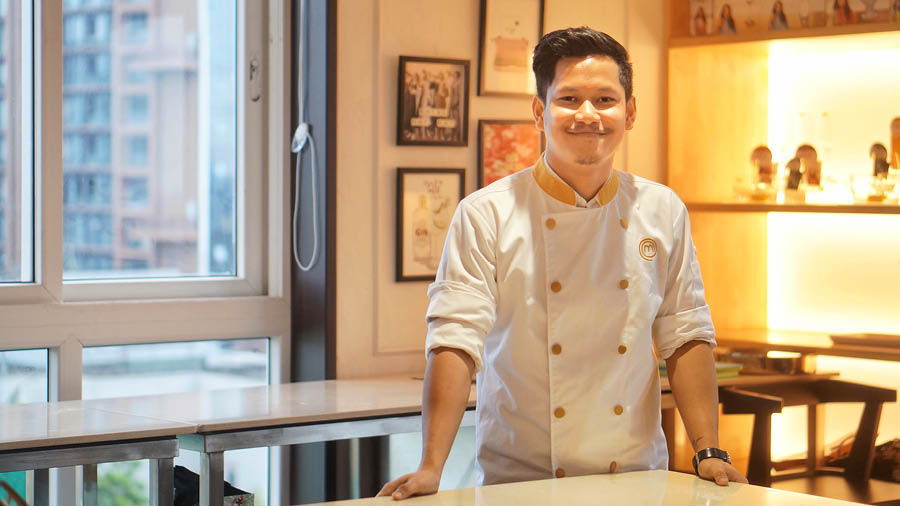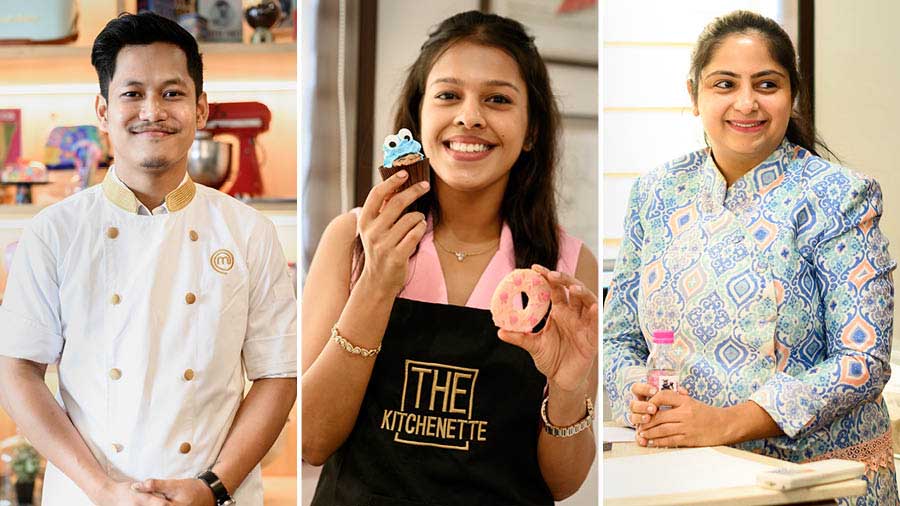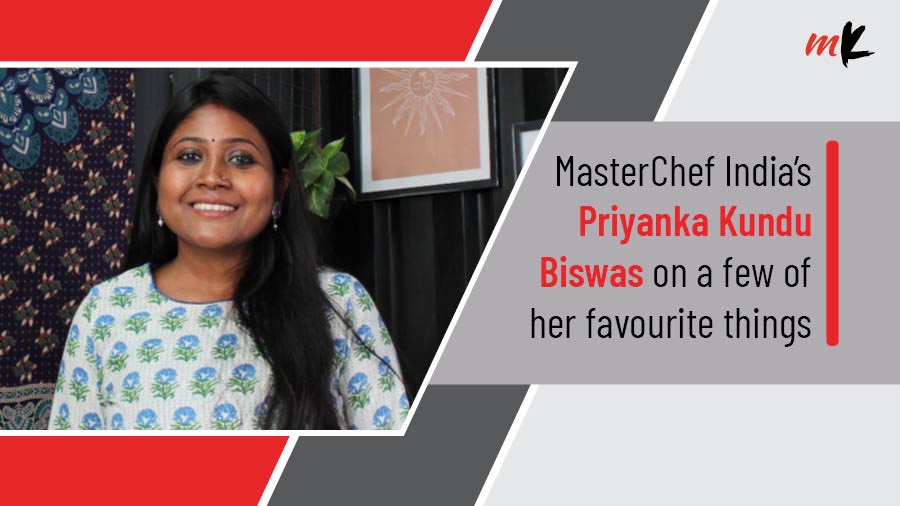Nayanjyoti Saikia, the 27-year-old boy from Tinsukia, Assam, recently emerged winner of MasterChef India Season 7. Since the conclusion of the show, he has been actively sharing his tips on cooking and baking on social media. During his recent visit to Kolkata to lead a pasta-making masterclass organised by Conosh, My Kolkata had the opportunity to catch up with him and delve into his journey, passion for food, and more. Edited excerpts from the conversation follow…
My Kolkata: To begin, can you share your experience after winning MasterChef India Season 7?
Nayanjyoti Saikia: Well, a lot of things have changed. I can tell you one funny incident. Prior to auditioning for MasterChef India, I had contacted a restaurant in Assam to enquire about any available chef positions. I wanted to work in a restaurant and learn how a kitchen functions. The restaurant owner, who happened to be an engineer like me, ended up asking me everything related to engineering during the interview, and not a single thing related to cooking. At the end he asked if I had studied hotel management. When I said no, he rejected me. However, after my MasterChef victory, he messaged me during our shoot, requesting my presence to inaugurate his new restaurant. This incident reflects the recognition and love I have received since the show went on air. People now know me, and their affection has been overwhelming.
So, is owning your own restaurant in your future plans?
Yes, that plan is on the cards. I am planning to open my own restaurant by 2025. It will be a fine-dining restaurant and I want it to be in Guwahati since there are not many fine-dine options there. Recently, one has opened in Guwahati and I am collaborating with them to learn how a restaurant is run. All I know is cooking. I still have much to learn about managing a restaurant, overseeing kitchen operations, and leading a team of chefs. So, I am gathering that experience first by collaborating with different restaurants and working alongside their teams for periods of 10-15 days.
What would you say is the most valuable lesson you took away from your MasterChef India journey?
Besides learning new culinary techniques and skills, I think MasterChef has made me confident. Previously, I was an introvert; I could not talk to people with confidence. Additionally, I was extremely camera-shy. However, after my MasterChef experience, I have newfound confidence in myself.
Speaking about the learning aspect, the show has been incredibly enriching. While I was comfortable with desserts before MasterChef, the competition introduced me to savoury dishes and various cuisines I had never even heard of. We learnt from the best chefs and they helped us upgrade our skills every day.
Between sweet and savoury, which is your personal favourite?
When it comes to cooking, I like making desserts. However, when it comes to eating, I like savoury dishes more! My all-time favourite savoury creation is my own secret recipe of fried chicken, the one I prepared during the show with pomegranate. It even got me the ‘Dish of the Day.’ That dish remains my personal favourite. Additionally, I enjoy duck meat.
Have you had the opportunity to explore Bengali cuisine? What is your favourite Kolkata food?
I have visited Kolkata 3-4 times. In fact, I gave my MasterChef India audition from here! Whenever I am in Kolkata, I try to eat Kolkata biryani with the alu in it! It is my favourite kind of biryani. Moreover, I have had the pleasure of trying Bengali food on several occasions. During my last visit, I dined at 6 Ballygunge Place where I had luchi with mutton. I absolutely love luchi. In Assam, we call it lusi and it is very similar to the luchi. I remember, during the MasterChef days, I had made luchi and I called it lusi and people laughed. But it is actually called lusi in Assam.
I have found much similarity between Assamese and Bengali cuisine, especially in the dishes found in the lower part of Assam. The spices used in Bengal, such as kalo jeere and panch phoron, are used in the dishes of lower Assam. If you explore Assamese food, you will find some flavours that are so much like Bengali food.

‘Whenever I am in Kolkata, I try to eat Kolkata biryani with the alu in it! It is my favourite kind of biryani’
What is that one magic ingredient in your kitchen that you can't do without?
There are so many. However, if I were to pick a few, I would say black sesame, shrimp paste, and sauces like oyster sauce and soya sauce. Dried shrimp is another personal favourite. These ingredients enhance the flavours of my savoury dishes. As for desserts, I love working with fresh oranges, but there are countless other ingredients that I use. It’s tough to choose just one!
Can you tell us about your home garden and the produce you grow?
I come from a big family, so we try to grow our own vegetables and fruits as much as possible. Our garden has a variety of regular vegetables and seasonal fruits. We have passionfruit and pomelo growing abundantly, so we make a lot of wine at home from homegrown fruits that I incorporate into both my desserts and savouries. I don’t consume the wine myself (laughs). It gives a nice flavour to the dishes, adding various fruity nuances. One of my homemade creations is wine-infused orange blossom. Whenever the flowers of the pomelo trees bloom, I pluck them and incorporate them into the wine, which gives it a distinct taste.
When it comes to making pasta from scratch, what are your expert tips?
Making pasta from scratch can be a bit tricky, but if you keep a few things in mind, you can master the art of preparing perfect pasta.
- First and foremost, pay attention to the basic kneading. The dough should be slightly firmer than what we usually knead when making rotis. If the dough is kneaded well, the shape will turn out fine.
- For filled pasta, the filling should have a balanced consistency. Avoid making it too dry, as it may break, whereas a runny filling can make the outer layer soggy.
- Additionally, keep dusting your pasta with flour or semolina while shaping it to prevent sticking.
- Seasoning the water well when boiling the pasta is another crucial tip. This allows the seasonings to permeate the pasta during boiling. Keep stirring the pasta while boiling so that it does not stick.
- The last and most important tip is to refrain from adding mayonnaise to the pasta.


